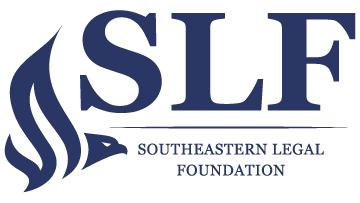Since 1977, the Supreme Court has allowed colleges to use racial preferences in the admissions process, giving universities across the country permission to award applicants a plus factor based solely on race. As a result, students are often admitted or rejected from their colleges of choice due to the color of their skin. Southeastern Legal Foundation (SLF) and Speech First filed an amicus brief supporting Students for Fair Admissions’ (SFFA’s) efforts to put a stop to the discriminatory college admissions process. SFFA is suing the University of North Carolina over its use of racial preferences in its admissions process. The lawsuit aims to end all race-conscious admissions for good.
Read More
In their brief, SLF and Speech First explain that colleges openly discriminate against applicants by relying on what is called the “diversity rationale.” Under that theory, colleges claim that it is necessary to use race as a factor in admissions so that a student body will be more diverse. When a student body is more diverse, viewpoints will be more diverse, thus serving the educational mission. Unfortunately, federal courts, including the Supreme Court, have come to accept this theory as true.
While it is true that exchanging ideas is critical to a university’s mission, it cannot be said that the only way to achieve open inquiry is through discrimination. As Speech First and SLF explain, the diversity rationale actually conflicts with basic First Amendment principles. Over the past several decades, freedom of speech on college campuses has been on the decline. SLF and Speech First cite to several surveys that demonstrate students’ levels of fear and discomfort when it comes to sharing their real opinions. This is only exacerbated by the rise of speech codes, bias response teams, and speech zones, each of which censor and silence students.
